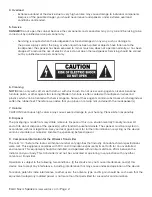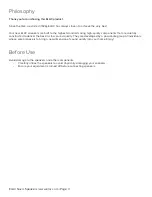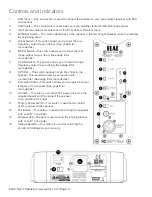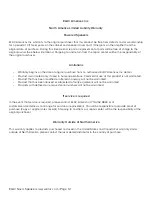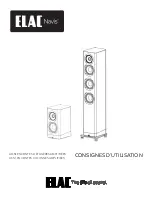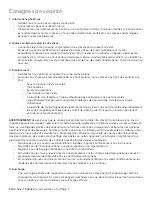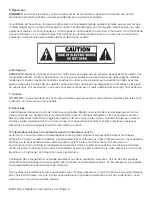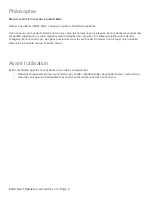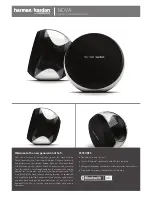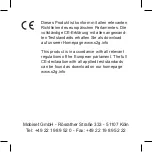
ELAC Navis Speakers | www.elac.com | Page 2
4. Overload
• Extreme overload of the device due to very high volume may cause damage to individual components.
Because of the possible danger, you should never leave loudspeakers under extreme overload
conditions unattended.
5. Service
DANGER!
Do not open the cabinet because the components and conductors may carry current! Servicing to be
carried out by qualified service personnel only.
• Servicing is required when the loudspeaker has been damaged in any way, such as damage to
the power supply cord or the plug, or when liquid has been spilled or objects have fallen onto the
loudspeaker, the speaker has been exposed to rain or moisture, does not operate normally, or has been
dropped. To reduce the risk of electric shock, do not open the loudspeaker. Servicing should be carried
out by qualified service personnel only.
6. Cleaning
NOTE:
Clean only with soft, smooth cloth or with dust brush. Do not use scouring agents, alcohol, benzene,
furniture polish or other agents for cleaning! Modern furniture is often coated with multiple varnishes and
plastics which can be treated with chemical agents. Some of these agents contain substances which degrade or
soften the rubber feet. Therefore we advise that you place an anti-slip mat underneath the loudspeaker(s).
7. Volume
CAUTION! Continuous high volume may cause severe damage to your hearing. Please listen responsibly.
8. Disposal
The packaging is made from recyclable materials. Dispose of this in an environmentally friendly manner. At
end of life do not dispose of the speaker(s) with standard household waste. The speaker must be recycled in
accordance with local legislation. Ask your local government for further information on recycling as the device
contains valuable raw materials. Disable the speaker(s) before disposal.
9. Compliance Information for the Wireless Transmitter
The term “IC:” before the radio certification number only signifies that Industry Canada technical specifications
were met. This equipment complies with FCC and IC radiation exposure limits set forth for an uncontrolled
environment. This equipment should be installed and operated with minimum distance 20cm between the
radiator and your body. This transmitter must not be co-located or operating in conjunction with any other
antenna or transmitter.
Operation is subject to the following two conditions: (1) this device may not cause interference, and (2) this
device must accept any interference, including interference that may cause undesired operation of the device.
To reduce potential radio interference to other users, the antenna type and its gain should be so chosen that the
equivalent isotopically radiated power is not more than that permitted for successful communication.



